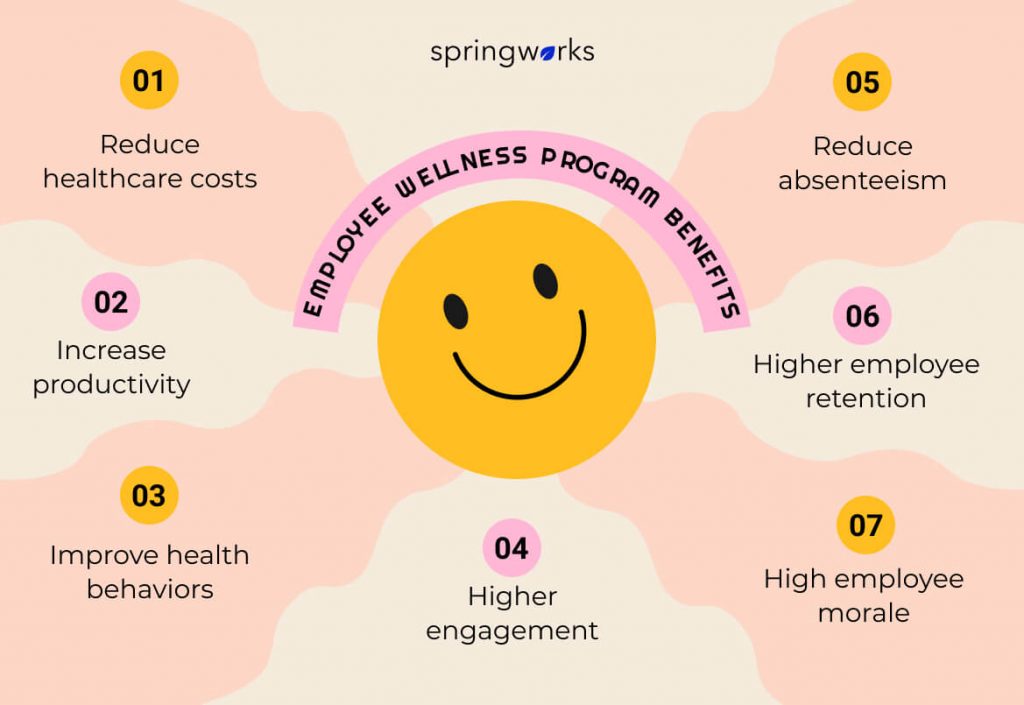Employee wellbeing should be a priority for every business owner, whether you run a small business or a multinational company. It’s the foundation of everything from productivity to health, profit and ROI.
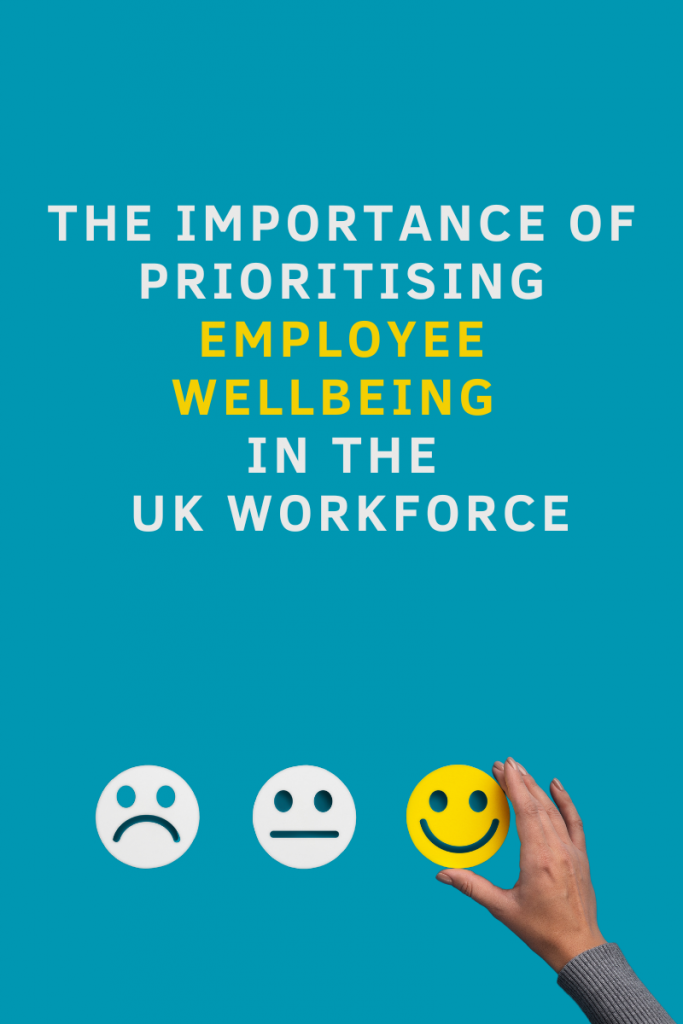
Mind recently revealed one in three people consider their job to be the most stressful factor in their lives. And with more than a third of our lives spent at work, its effects on wellbeing can be vast. And they can often continue long after the working day is over. That’s why, no matter where your employees are based, companies have a duty of care.
Furthermore, ‘The Great Resignation’ is proving that people are no longer willing to choose between wellbeing and work. Employees expect – and deserve – more.
In the words of Richard Branson “Take care of your employees, and they’ll take care of your business”.
In this article, we’ll be looking at:
- what we mean by employee wellbeing
- why employers need to invest in employee wellbeing
- the rise in demand for corporate wellbeing programmes
So, what exactly is employee wellbeing?
Employee wellbeing is all about developing a culture that allows employees to thrive. It covers many different dimensions including physical, emotional, psychological, social and even financial. The workplace environment can also have an impact on employee health and wellbeing.
It looks at an employee’s experience at work from a holistic point of view and asks, “does the employee have what they need to do their best work?”.
It has long been proven that good work is good for health and can reduce health and economic inequalities. So, employee wellbeing is at the heart of a happy, healthy and productive workforce.
A report by Deloitte revealed that happy workers are:
- 20% more productive,
- 34% less likely to leave their jobs, and
- 37% less likely to take time off sick.
And a major study carried out by leading economists at the University of Warwick found that employee wellbeing can increase productivity by 12 percent. Conversely the researchers found that unhappy employees were up to 10 percent less effective.
Work related ill health costing employers up to £42 billion
Obviously, not all employees are happy at work. It’s been estimated that 38.8 million working days are lost due to work-related ill health, according to The Health & Safety Executive. And according to Thriving at Work, this loss of work can lead to an annual cost to employers between £33 and 42 billion.
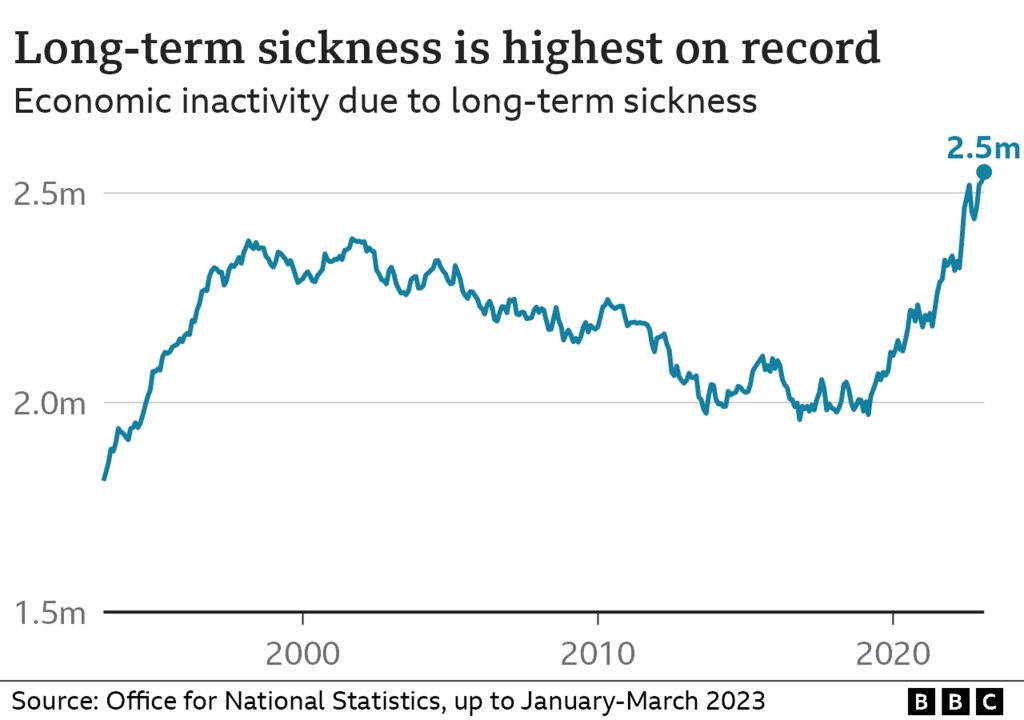
Before the pandemic, research found that only a quarter of UK businesses had a wellbeing programme in place, despite the vast majority recognising the positive impact it could have on both employees and the organisation.
Covid-19 shone the spotlight on mental health as the global pandemic and shift to remote working took its toll on many employees.
According to Dave Capper CEO, Westfield Health, Covid-19 has made it all too clear that the productivity of our workforce, the success of our businesses and the buoyancy of our economy rests on health.
Pandemic lead to an increase in demand for health and wellbeing solutions
Howden Employee Benefits & Wellbeing has highlighted that the pandemic lead to an increase in the demand for private healthcare and other health and wellbeing solutions
Fuelling this demand is the increased awareness of the importance of good health and wellbeing, coupled with the recognition that our NHS is under major strain.
Research by digital mental wellbeing platform Koa Health has found there was a 44% decline in the mental health of individuals living in the US and the UK between February and March 2020.
However, a decline in mental health during the pandemic has been counteracted by a 72% increase in wellbeing support from employers.
In April 2022 GetApp published a survey of employees of UK SMEs with fewer than 250 staff. It found that employees reported mental health had declined by 14% since the start of the pandemic, and that 22 per cent of respondents said they felt more stressed at work now than they did a year ago.
Worryingly, only 29 per cent of respondents said they received mental health resources from their employers to help them through the pandemic!
Most sick leave has been connected to stress, depression, anxiety and musculoskeletal disorders according to the HSE. With stress being such a huge factor, there is a strong link with challenging work environments.
70% of employees report that they’ve missed work this past year due to mental health issues. Only 28% of employees report feeling “very engaged” in their work.
– Headspace
Self-care is becoming an increasingly popular topic, especially in the workplace, as employees are looking for ways to manage stress and improve their overall well-being.
Rising Worplace Stress leading to increase in spending on health, wellness & travel programmes
As a result of rising workplace stress and a similar increase in corporate wellness programmes, there has been over 20% year-on-year increase in average UK spending on health, wellness and travel programmes.
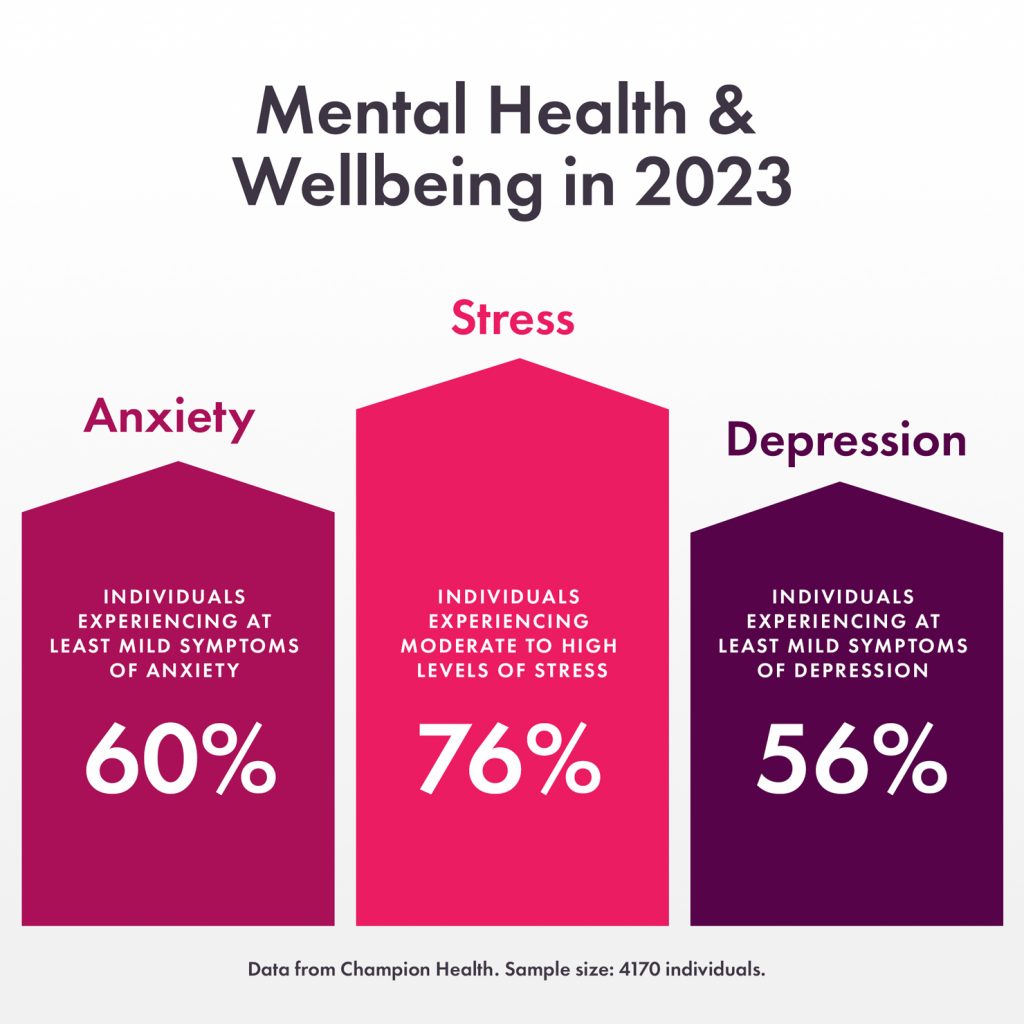
And according to research conducted by Socially Recruited, a social media recruitment platform, job adverts which refer to wellness subsidies, budgets, or discounts have skyrocketed by 310% in the past 12 months. Additionally, mentions of employee counselling services have doubled, experiencing a significant 95% increase.
Companies like Innocent are prioritising the mental health of staff in the UK. They know that mental health is an issue they can’t ignore. This is because it’s the leading cause of sickness absence in the UK, costing an average of £1,035 per employee per year as found by the Time to Change campaign.
And the number of nature-focused activities has more than doubled in the last year, due to proven scientific studies showing the therapeutic effects nature has on mental health.
The impact of hybrid working and social isolation on employee mental health
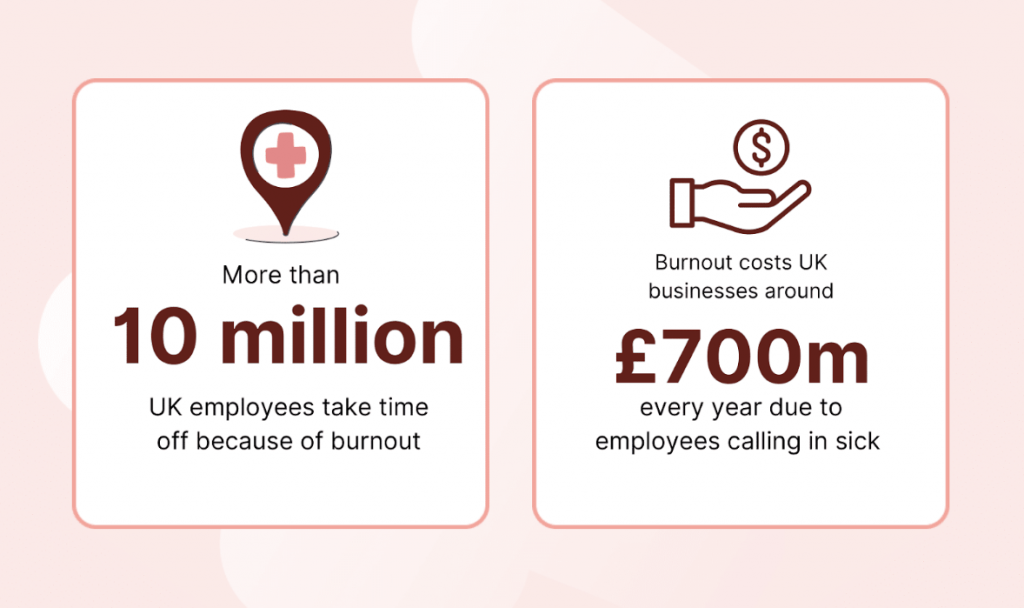
Since Covid, hybrid working has been on the rise. Although many employees enjoy the flexibility of being able to work from home, reporting better productivity and work-life balance, others struggle with social isolation.
Social isolation is a term often used interchangeably with loneliness. It describes the absence of social and professional contact, and if managed poorly by businesses, can lead to ill health, poor productivity and performance concerns. It can also lead to presenteeism with employees still working (albeit remotely) despite not being well enough to do so, or increased sickness absence.
Social isolation is closely linked to both anxiety and depression. Changes in appearance and behaviour such as sense of withdrawal and hopelessness, as well as poor decision-making and work output can be signs.
Chronic workplace stress that has not been successfully managed can also lead to burnout.
Creating a culture where employee wellbeing is effectively managed regardless of the employee’s place of work is therefore vital to business success. Furthermore, it’s essential if employers are to meet their legal obligations.
Aon’s Rising Resilient study showed that resilience triples when employers adopt a well-rounded health and wellbeing programme supporting physical, social, emotional, financial and career needs. Creating and developing a supportive environment that builds resilience for both employee and employer is vital.
In the current economic climate, many businesses will no doubt be looking closely to see where they can cut costs. However, investment in wellbeing strategies just isn’t a place to do this. Although it may save money in the short term, employees are crying out for help and businesses that invest in employee wellbeing are likely to see a significantly positive impact.
The impact of financial worries on young employees
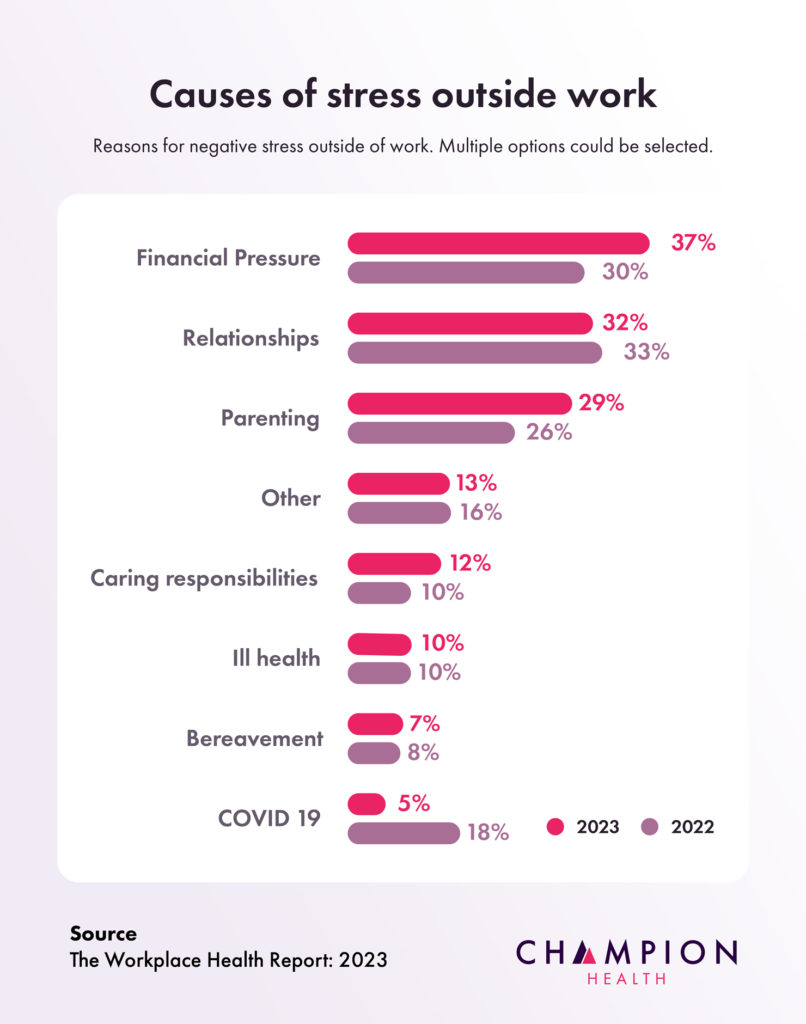
Research by Neyber estimates that money worries cost the UK economy £120bn and 17.5 million lost hours of work. Most employers now recognise a link between financial wellbeing and productivity, with nine out of ten saying that financial concerns impact upon staff performance.
According to a CIPD health and wellbeing report, over 1/3 of workers aged between 25 and 34 have admitted to being less productive at work due to financial worry alone. While more employers than ever are taking action to improve employee wellbeing, some are still overlooking the financial aspect.
Champion Health’s employee wellbeing statistics also found that financial pressure is disproportionately affecting younger employees.
Financial Health Club can help employees manage their ‘financial fitness’ and a strong financial wellbeing offering should be part of a wider holistic workplace wellbeing strategy. Aside from seeing increases in productivity and decreased staff turnover and absences, in the context of the talent and skills crisis many organisations are likely to achieve improved attraction and retention rates too.
Recently the UK’s first financial wellbeing programmed offered through WhatsApp has also been announced.
Empathetic bosses improve employee wellbeing
UK business leaders now view flexible working patterns as the most crucial factor in improving employee wellbeing. As a result they are implementing this in their companies. Two in three business leaders (63%) have already introduced flexi-working. And a further 20 per cent are planning to do so in the next year.
It’s clear that business heads are taking a more empathetic, inclusive approach to leadership. Board-level executives in the UK now rate integrity, empathy, listening skills and trustworthiness among the most important qualities of a CEO.
Consequently, one in five now see their CEO as taking on the dual responsibility of ‘Chief Empathy Officer’. In fact, three in 10 British businesses say they already have a ‘CEmO’ in post. And a further 13 per cent planning to create the position in the next 12 months.
3 key reasons employers should invest in employee wellbeing programmes
Employers who seek to support their staff benefit in many ways. The Chartered Institute for Personnel Development (CIPD) wellbeing report 2022, found that organisations which have a workplace wellbeing strategy in place, were at least twice as successful at lowering sickness absence, improving morale and engagement,
Earlier this year research showed that the financial return on investing in wellbeing could be up to £370 billion.
And a study by Deloitte found that for every £1 invested in employee wellbeing, there was a return on investment (ROI) of £5.
Here are some of the top reasons why it’s important to invest in employee wellbeing programmes:
1.Increases productivity
One of the major benefits of corporate wellness programmes is increased productivity.
When employees aren’t at their best, their productivity is affected. Poor employee productivity refers to a scenario where someone is physically present at work, but “not there” mentally. The cause can be multiple factors: lack of sleep, headaches, physical discomfort, or mental health problems.
Coping after covid, produced by Westfield Health, interviewed 1,600 employees and HR leaders. It revealed that 43% of HR managers with wellbeing programmes in place described their employee productivity levels as ‘very good’, compared to just 18% at organisations without them.
According to scientific evidence, employees lead healthier, more productive lives by taking time off. That’s because workplace stress increases mental fatigue and makes it harder to concentrate.
Taking time off refreshes the mind, so employees come back to work with renewed focus and increased motivation. Employee wellbeing days are the perfect way to ensure employees are taking time off that’s beneficial for their performance at work.
2. Boosts morale
Investing in wellbeing initiatives shows your employees that you’re invested in them and value them. Employee sentiment and customer experience are directly linked. When employees are supported and satisfied, they’re more likely to deliver good service to your clients and customers.
3. Retain (and attract) talent
The pandemic has highlighted the value of working for an organisation that supports its employees – not just through good times but also through tough times. as a place to work.
And according to Paychex and Future Workplace, 62% of all employees identified wellbeing benefits as a key factor in deciding whether to apply for a new job. This was especially true for Gen Z, where 67% agreed that wellbeing benefits will be a priority for them in evaluating new job offers.
By including wellness benefits in your compensation package, you can attract a wider pool of potential candidates for any job role.
The rise in Corporate Wellbeing Services
There are some great corporate wellbeing and wellness programmes available to support employees. This includes Harley Street Counselling & Training’s Corporate Wellness Package.
And Perkbox is a well-known and trusted employee benefits platform. They help employers care for, connect with and celebrate their employees.
There is clearly a financial benefit for investing in employee wellness services. But obviously in the current economic climate you will want to take time to choose the right employee wellbeing scheme.
Employee wellbeing is good for employees and good for business
People are at the heart of any business. And investing in people makes good business sense. By saving on sick pay, retaining staff and helping to attract the best talent, it’s really a no brainer!
Can you afford not to invest in employee wellbeing?
P.S. If you’re looking for lifestyle management support/concierge services for yourself or your employees please email annie@bijouconcierge.co.uk for more info.

